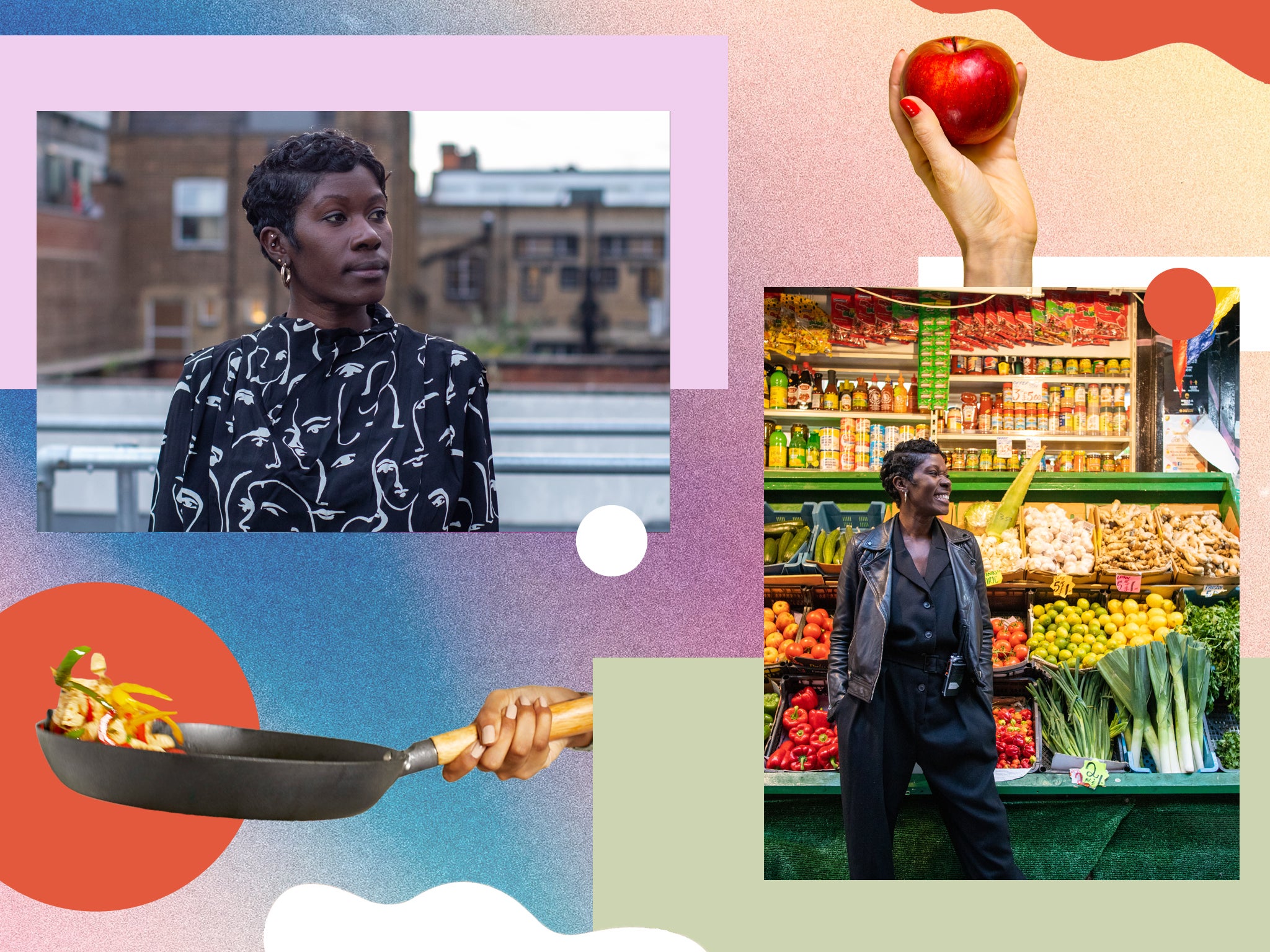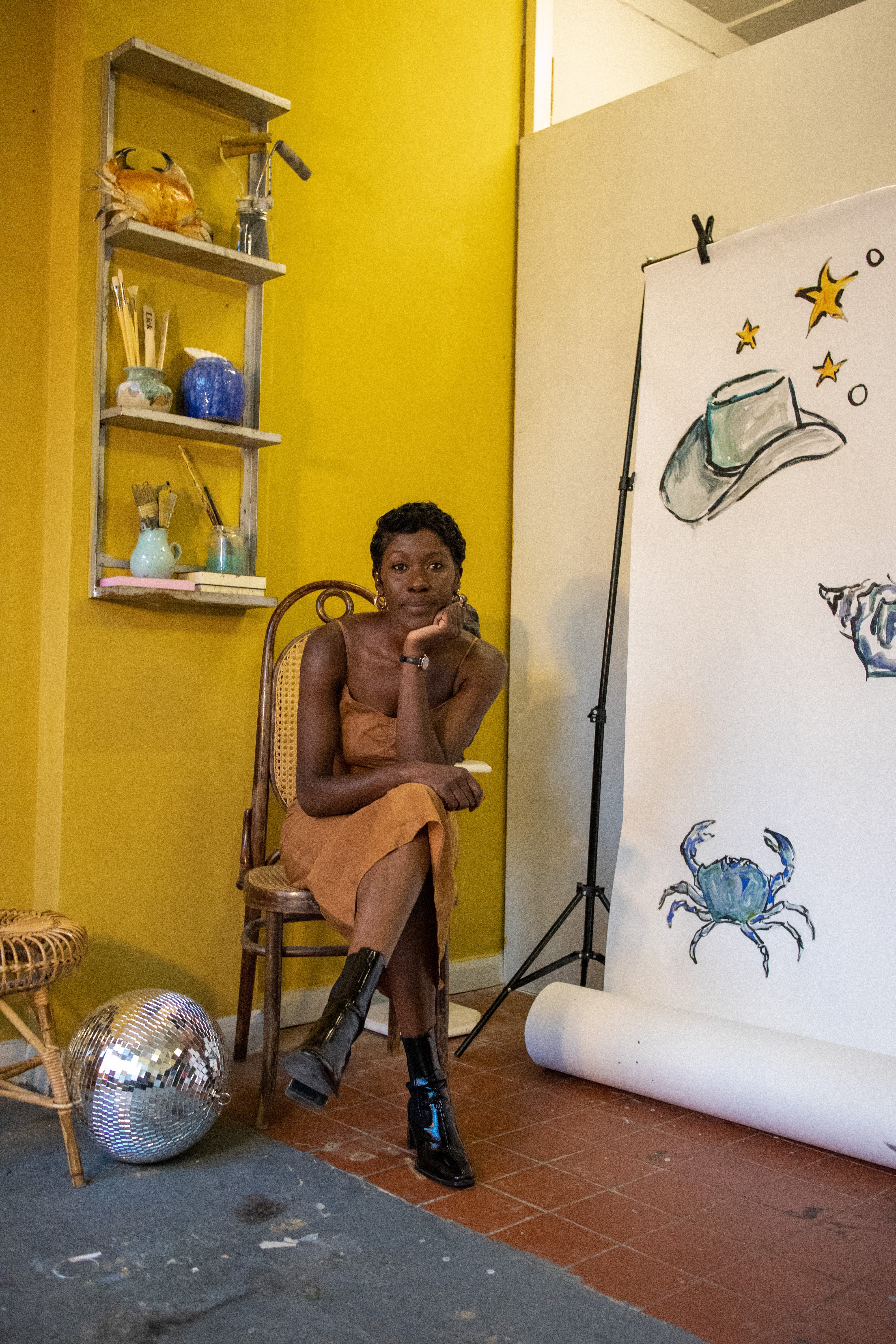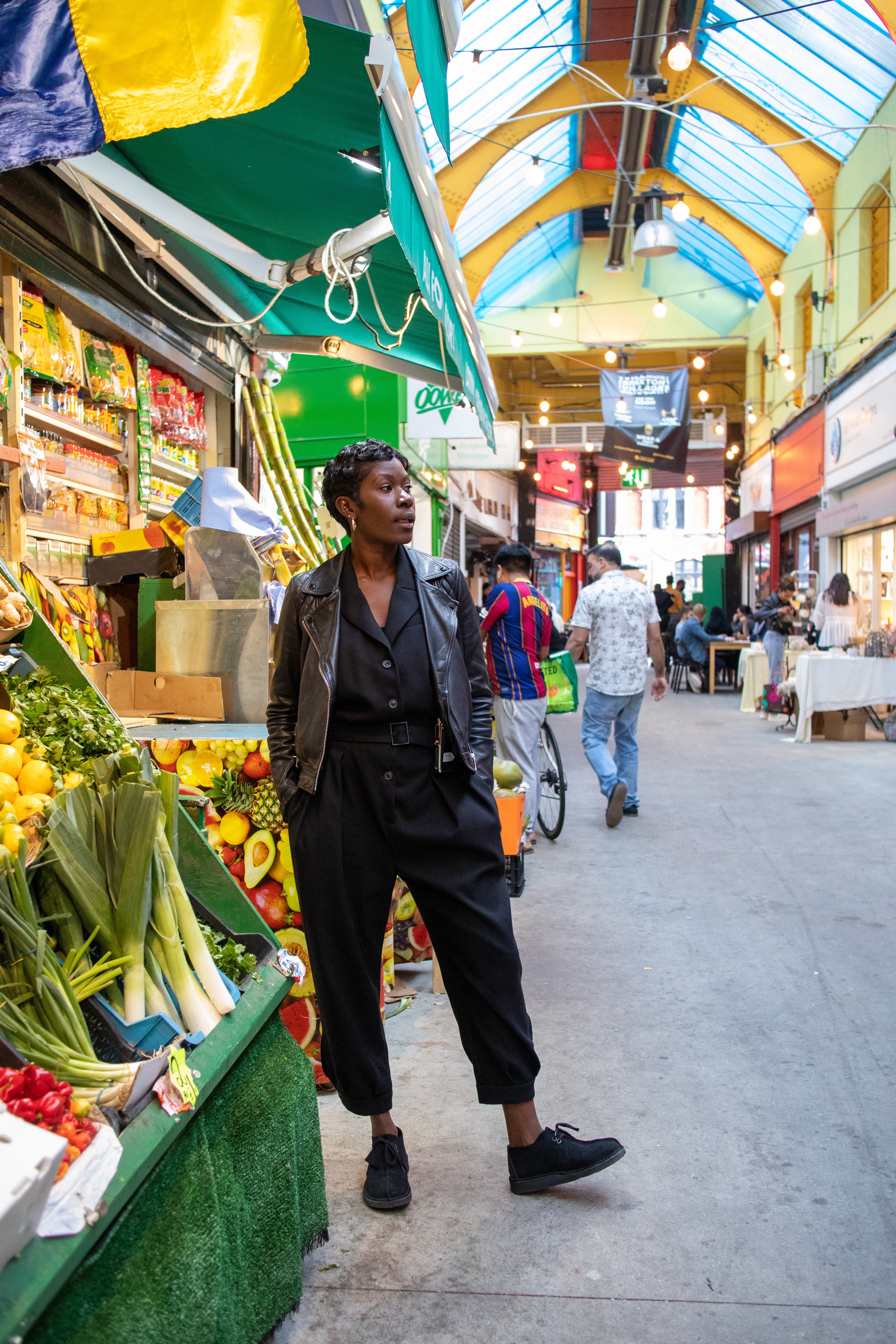Diana Nabagereka: ‘If they don’t see you there, they don’t know there’s a space at the table for them’
Maintaining a space as culturally significant as Brixton Village is no mean feat, but it’s a challenge Diana Nabagereka is happy to rise to. She speaks to Molly Codyre about her unique path into hospitality, upholding the market’s history and encouraging other black women to break into the industry


Your support helps us to tell the story
From reproductive rights to climate change to Big Tech, The Independent is on the ground when the story is developing. Whether it's investigating the financials of Elon Musk's pro-Trump PAC or producing our latest documentary, 'The A Word', which shines a light on the American women fighting for reproductive rights, we know how important it is to parse out the facts from the messaging.
At such a critical moment in US history, we need reporters on the ground. Your donation allows us to keep sending journalists to speak to both sides of the story.
The Independent is trusted by Americans across the entire political spectrum. And unlike many other quality news outlets, we choose not to lock Americans out of our reporting and analysis with paywalls. We believe quality journalism should be available to everyone, paid for by those who can afford it.
Your support makes all the difference.Brixton Village is so much more than a food market: it serves as a central space, a cultural meeting ground and has been deep, integral ties to the area’s Caribbean community. It’s somewhat of an understatement, then, to say that Diana Nabagereka has an important job as general manager of the place.
Like other areas that provide marginalised communities with a space to call their own, gentrification has descended upon Brixton in recent years. This has made maintaining a space as significant as the Village more important than ever. Obtaining heritage status for the market in 2010 helped assure its longevity – it means the structure can’t be torn down – but Brixton Village is about so much more than its physical location. That’s where Nabagereka steps in: it’s up to her to retain the spirit of the market. Juggling incoming restaurant tenants with established businesses, continuing to foster the cultural diversity of the market and ensuring it doesn’t become another whitewashed space in London’s food history are part of the job description.
“Brixton Village is made up of two covered markets within central Brixton. We have 120 tenants,” Nabagereka tells me. “My role as general manager is essentially to manage the sites with a team of operators across the two markets. Our day-to-day accountability is to make sure the market is clean, safe and secure. We also work very, very closely with the landlord, Hondo Enterprises, in curating the retail and market mix that we have onsite.
“Hondo’s master plan has always been circumvented around elevating what people know and understand of Brixton Village. So a lot of my role is anchored in truly understanding what the cultural, retail, food and beverage mix is. It’s a mega role, particularly because Brixton Village is a grade two listed building. Back in 2011, the landlord at the time purchased the two markets and had intentions to sell it onto a property developer. Brixton, being ingrained in heritage and boisterous in its pride of what it is, the local community found out about it and made mega sounds with the local authorities, and mega protests. Within two months it was grade two listed.”
“Interestingly,” she continues, “it’s been preserved not only for its architectural significance – if you know Brixton Village, you know it’s not exactly a pretty piece of property. But what it does have is this magical, cultural – I hate this term – melting pot. So it was actually preserved for its cultural significance. And so there is a responsibility in preserving Latin American greengrocers, Caribbean fishmongers and Japanese restaurants. That’s what’s woven into the grade two listing. How many people can say they’re a custodian for that kind of retail mix?”

Nabagereka’s role is an intriguing one: it doesn’t sit within what many people imagine when they picture a career in hospitality, which is partly why I was so drawn to telling her story. “I left university as a paediatric nurse,” she says. “It’s something I took on because I knew I loved children. After about 18 months I was like, something isn’t right. I love children, but I think I’m inherently selfish. I like sleep! It’s a skillset you have for life, but you can jump back into it if you truly miss it. And so with that I thought, OK, where do I go from here?”
This pivot took her to the Arcadia Group, then to a series of boutique brands before moving into a role as food and beverage liaison manager for the London Designer Outlet, where her love for hospitality truly began. “After two years I thought, ‘I’ve learned everything I can here. What is missing?’ I came across this amazing role at Camden Market. It’s a global brand, the most tourist-trodden location in London, and the role was to essentially take on a team of market managers and shake them up.”
She talks me through the highs, lows and logistical nightmares, like trying to bring some business acumen to start-ups essentially making things up as they went along. Hondo Enterprises headhunted her about 13 months later.
“Hondo approached me at the start of 2019 and said [Brixton Village] needs a lot of work. We have 60 remarkable, interesting restaurants, bars, cafes, greengrocers, butchers, and we need to put them on the map. But we need to get house-proud first. Is the market clean enough? Is it safe enough? Are the food standards where they need to be? And then once we’ve done that, we need to create a bit of a brand around Brixton Village.”
It’s a deeply complex process, and it’s certainly no fairytale. While many would see it as preservation of Brixton Village, some gentrification was unavoidable, despite efforts to safeguard the market’s cultural significance. I ask Nabagereka about the controversy involving Nour Cash & Carry, a food store forming a vital part of the local area. Hondo issued Nour with an eviction notice in the middle of the pandemic, and what ensued was a viral campaign and protest movement to save the store. It was eventually successful, but not without impacting on the landlord’s reputation.
Of the controversy, Nabagereka said: “I’m actually pretty pleased that we maintained a positive relationship with the Nour family throughout their negotiations, which means they’re able to grow their business into a bigger unit in the new year. It’s the balance of long-standing tenants like the Nour family alongside new businesses which maintains and builds the vibrancy we all know and love.”

We touch on the obstacles Nabagereka faced in her career. She came into the industry at a reasonably young age, finding a primarily “pale and male” operations system. “I’ve been sat in a room and I know I have the knowledge, but I’m almost not given the airtime, or not considered as being knowledgeable, purely because I’m in my early thirties.”
She also largely feels that being a black woman has, if anything, allowed her to be better at her job. “Being at Camden and then coming to Brixton, I think that’s been a powerful thing to have. Being a black woman has broken down a number of barriers: Brixton is a neighbourhood that is very proud of its heritage, and very protective of it. I’m juxtaposed to what people perceive as a landlord in the hospitality world because I am young, because I am a woman, because I am black.” She feels her presence allowed tenants to have frank conversations about their position in the Village, something that has allowed her to create a space looking to the future while honouring its past.
“As I walk through Brixton Village and look at the hospitality spaces that we have, there’s a healthy mix of women, and women of colour. That’s something really powerful that I push to the forefront of any conversation we have.” Helping more black women create spaces for themselves in hospitality is always going to be a resoundingly positive thing for the industry, and something she is distinctly focused on. She puts herself forward for mentor programmes, hosts talks in local schools and uses what she calls her “warped path” into the industry as a way to highlight the unique ways to access it.
“We could go on for ages about the underrepresentation of women in hospitality,” she says, “and then delve even further into the underrepresentation of black women in the hospitality industry. It’s a powerful testament to be in my position, because it continues to encourage those that look like me. If they don’t see you there, they don’t know there’s a space at the table for them.”
Join our commenting forum
Join thought-provoking conversations, follow other Independent readers and see their replies
Comments